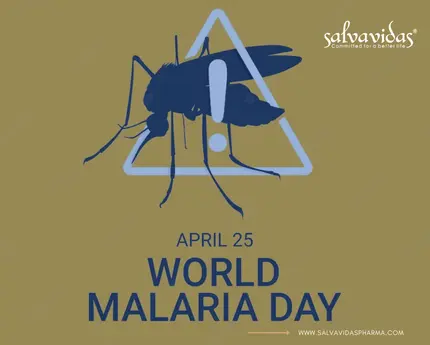
Malaria is a life-threatening disease that is caused by parasites transmitted through the bites of infected mosquitoes. It continues to be a major public health concern, especially in developing countries, with an estimated 229 million cases and 409,000 deaths in 2019 alone. World Malaria Day is observed every year on April 25th to raise awareness about the disease, its impact, and the need for urgent action to prevent and control it.
What is World Malaria Day?
World Malaria Day was established by the World Health Organization (WHO) in 2007 to provide an opportunity for people around the world to come together to raise awareness about the global burden of malaria and the need for continued investment and political commitment to combat the disease. The theme for World Malaria Day 2023 is “Zero Malaria Starts with Me,” which emphasizes the importance of individual and community actions to prevent and control malaria.
The Impact of Malaria
Malaria is a disease that primarily affects the most vulnerable populations in the world, including young children, pregnant women, and people living in poverty. It can cause fever, chills, headache, muscle pain, and other flu-like symptoms, which can progress to severe illness, organ failure, and death.
Malaria also has significant economic and social impacts, particularly in developing countries where it can lead to decreased productivity, lost income, and increased healthcare costs. It is estimated that malaria costs Africa alone more than $12 billion per year in lost productivity and healthcare expenses.
Progress and Challenges in Malaria Control
There has been significant progress in the fight against malaria in recent years, with a 60% reduction in malaria deaths since 2000. This progress is due to increased investment in malaria prevention and control interventions, including insecticide-treated bed nets, indoor residual spraying, and effective treatment with antimalarial medicines.
However, there are still many challenges that need to be addressed to achieve the global goal of malaria elimination by 2030. These challenges include the emergence of drug-resistant malaria parasites, insecticide resistance in mosquitoes, and the lack of access to effective malaria prevention and control interventions in some areas.
How to Prevent and Control Malaria
Preventing and controlling malaria requires a comprehensive approach that includes both individual and community-based interventions. Some of the key strategies for preventing and controlling malaria include:
1. Use of Insecticide-Treated Bed Nets
Insecticide-treated bed nets are one of the most effective ways to prevent malaria. They provide a physical barrier between people and the mosquitoes that transmit the disease and kill mosquitoes that come into contact with them.
2. Indoor Residual Spraying
Indoor residual spraying involves spraying insecticides on the walls and ceilings of homes to kill mosquitoes that come into contact with them. This can be an effective complement to bed nets, especially in areas with high malaria transmission.
3. Prompt Diagnosis and Treatment
Early diagnosis and prompt treatment with effective antimalarial medicines can save lives and prevent severe illness. However, access to these medicines can be a challenge in some areas, and drug-resistant strains of malaria are a growing concern.
4. Vector Control
Vector control measures, such as larviciding and environmental management, can reduce the number of mosquitoes in an area and prevent them from transmitting malaria.
5. Community Engagement and Education
Community engagement and education are critical for raising awareness about malaria and promoting prevention and control interventions. This can include community-based education programs, outreach to schools and other organizations, and engagement with local leaders and stakeholders.
Conclusion
World Malaria Day provides an important opportunity to raise awareness about the impact of malaria and the need for continued investment and political commitment to prevent and control
Malaria. While significant progress has been made in recent years, there is still much work to be done to eliminate this deadly disease. By using a comprehensive approach that includes individual and community-based interventions, we can make progress toward a world free of malaria.
FAQs
Q. How is malaria transmitted?
A. Malaria is transmitted through the bites of infected mosquitoes.
Q. Is malaria a contagious disease?
A. No, malaria is not a contagious disease and cannot be transmitted from person to person.
Q. Can malaria be prevented?
A. Yes, malaria can be prevented through the use of insecticide-treated bed nets, indoor residual spraying, prompt diagnosis and treatment, vector control measures, and community engagement and education.
Q. Is there a vaccine for malaria?
A. Yes, there is a vaccine for malaria called RTS, S/AS01. However, its effectiveness is limited and it is not widely available.
Q. How can I get involved in the fight against malaria?
A. You can get involved in the fight against malaria by supporting organizations that work to prevent and control the disease, raising awareness about the impact of malaria, and advocating for increased investment and political commitment to combat the disease.

0